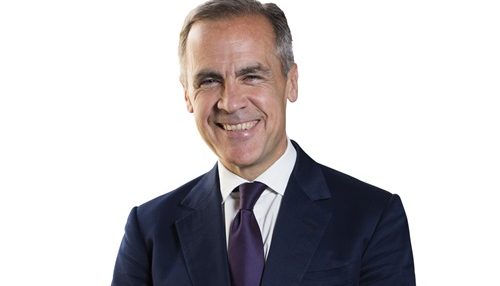
In a speech today, Mark Carney said that this new economy which is emerging is driven by immense changes in technology, the reordering of global economic power, and the growing pressures of climate change. This is all made possible by the new technologies but that these changes demand new financial products which will increase the sector’s resilience, be more cost effective and be both better tailored and more inclusive. As a major part of this movement forward, he proposes that The Bank Of England looks to itself and ensures that it is up to speed and prepared for the changes to come. The report compiled by Huw van Steenis will come out in 2 months, but expectations will be that it will highlight speedier payments for the predicted 1/4 of all sales being online - RTGS (Real time Gross Settlement) being available for all payments instead of just commercial banks for instance. Banking is the second biggest investor in AI, Cloud and Machine Learning after retail. But, he says that as more data was created in the past two years than in all the years that came before, this data is creating enormous opportunities for the new finance to serve customers better and to manage risks more effectively. All we need to know now is who will be his successor on the 1st of February 2020? https://www.bankofengland.co.uk/-/media/boe/files/speech/2019/a-platform-for-innovation-remarks-by-mark-carney.pdf?la=en&hash=49FE92075B4C7DBB0C7E0975CDF38488BB0A02FB

The Office for National Statistics have released the employment figures for December 2018 to February 2019 and they are looking very positive.
Starting with employment rate, this is rated at 76.1%, the joint highest figure on record and the unemployment rate was estimated at 3.9% which hasn’t been lower since 1975.
The office estimate that 53.9% usually work between 31 and 45 hours a week and 18.3% usually work over 45 hours a week. 4.83 million people now class themselves as self-employed, 76,000 more than the previous year and 14.8% of the workforce. There has been a fall in vacancies suggesting a strong demand and the wage recovery continues to gather strength although the TUC General Secretary says that the pay squeeze has been the longest in 200 years. .
There has been a slight rise in the numbers of women in work, but this is because the State retirement has risen.
https://www.ons.gov.uk/employmentandlabourmarket/peopleinwork/employmentandemployeetypes
/bulletins/employmentintheuk/latest

P2P Finance News reports today on Growth Street’s research which finds that 43% of Manchester’s small businesses would turn to alternative finance in preference to banks. This is probably because 72% have a healthy knowledge of this area of finance as opposed to only 66% in the rest of the UK.
However, this figure is rising year on year (up 27% from last year) and it’s believed to be part of the general boosting of the Northern Power House as financial acuteness burgeons. In the North West in general, 39% of businesses have considered using Alternative Finance instead of banks in contrast with 35% in the rest of the UK.
http://www.p2pfinancenews.co.uk/2019/04/08/manchesters-small-businesses-turn-to-alternative-finance

John McDonnell has announced plans to create around 3,600 branches if they are elected into power.
As we reported last week, the rate of bank closures has meant that 2/3rds of banks have closed in the UK in the last 30 years. From over 20,000, there are now only around 7,500.
McDonnell believes this would cost around £2.5 billion but would allow face-to-face banking and remove the strangle-hold that big banks have on our society. "Poor access to local bank branches hurts our town centres and local communities, particularly affecting elderly and more vulnerable customers, as well as damaging the ability of local small businesses to invest."
On a more practical matter, the closure of banks has meant that cashing-up for small shops can make them vulnerable to theft with the loss of night-deposit facilities means cash remains on the premises. McDonnell has not yet revealed where the funding will come from.

The Scottish Affairs Committee meet in Westminster this week to discuss the rapid closure of banks in Scotland - 610 have closed in the last 8 years. They will take evidence from Citizens Advice and Scottish Rural Action amongst others. One of the concerns is the future prosperity of rural industries as sources of cash are removed and access to banks is removed for many. Overall, two thirds of UK bank branches have closed in the last 30 years.
The Banking fraternity expect that 72% of customers will be using Internet-Banking by 2023 but this leaves almost one third cut out from the banking system. Without a bank account much of everyday life becomes very difficult as pensions, utility bills and the like rely on a good, fast, internet connection and internet banking. We await the results of the committee with interest.

The CPI (Consumer Prices Index) showed a slight increase in inflation from January (1.8%) to 1.9% for February.
Among the rises are wine up by 8p a bottle due to duty rises and some strong ciders. Food has also risen slightly.
Estimates suggest that the rise will continue until at least April with some forecasting inflation at 2.5% by then, with increasingly high prices for imported raw materials.
Conversely, if the UK economy stagnates or dips, as many predict for post-Brexit Britain, then this could put the brakes on inflationary pressures.